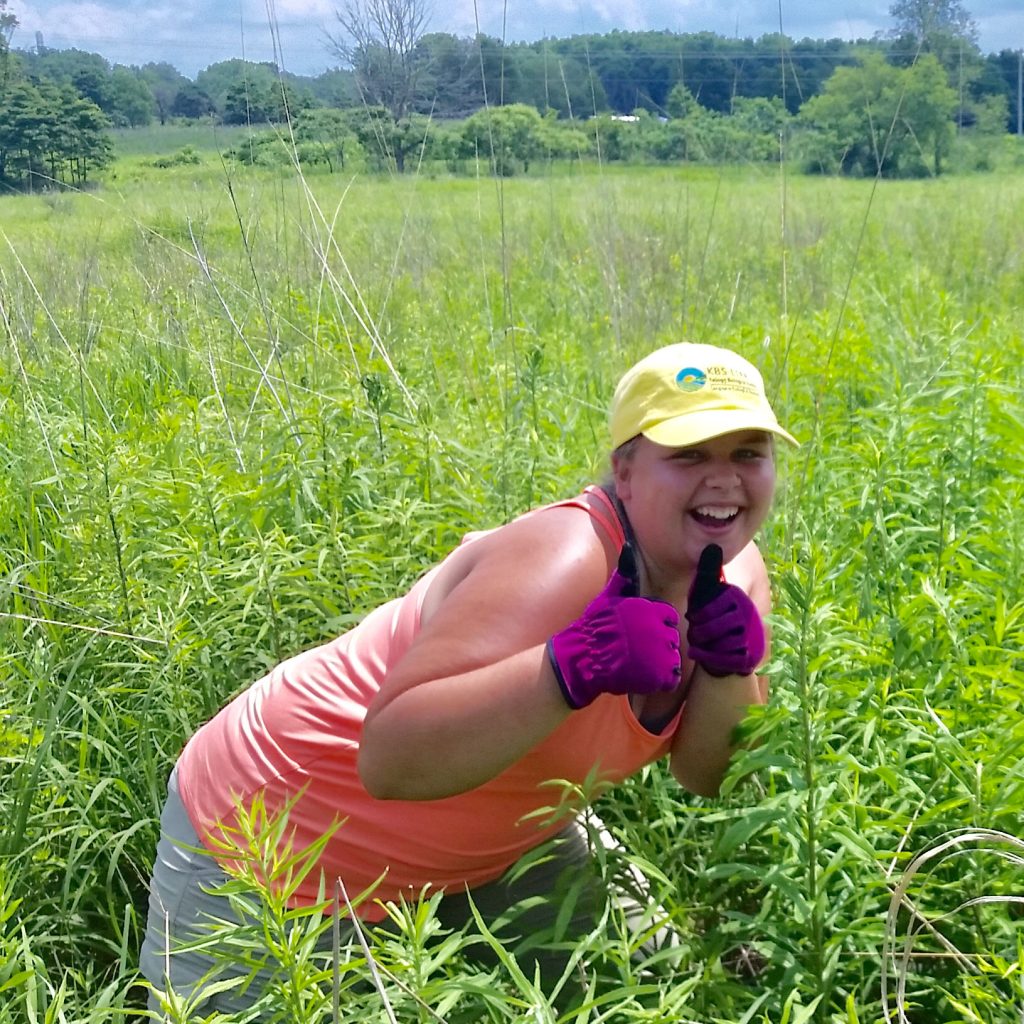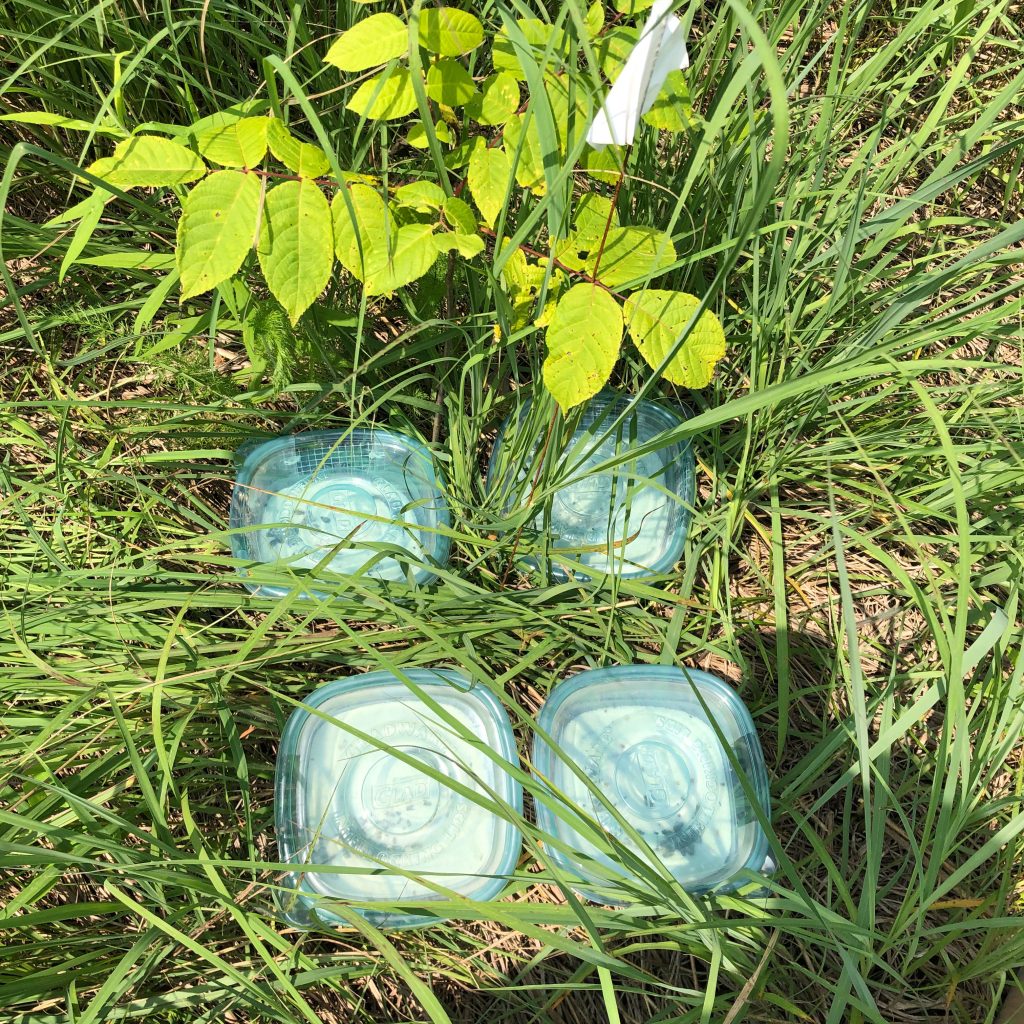Each summer, undergraduate students come to W.K. Kellogg Biological Station for the unique opportunity to live, study, and do hands-on research at an internationally known field station. And for some students, like Sarah Johnson, that research continues after the summer and opens other doors in their academic and professional careers.
For Johnson, a years-long research project, which began in 2019 during her time in the Undergraduate Research Apprenticeship—URA—program at KBS, culminated in the publication of her research with graduate mentor Meredith Zettlemoyer, now a postdoctoral research associate at the University of Georgia.
“This study developed because I was interested in mammals as a zoology student at Michigan State University, but my URA position was in Dr. Jen Lau’s plant ecology lab,” said Johnson.
“My graduate mentor and I wanted to incorporate my interests with her ongoing study investigating potential causes of local prairie plant losses from Kalamazoo County, Michigan. We studied if small mammals, like mice or voles, could play a role in the population declines through their consumption of seeds, which would result in fewer seeds to contribute to new seedlings.”
About the study
To investigate their question, Johnson and Zettlemoyer set up trays of seeds in a decade-old prairie restoration. They included seeds from species that still are found in local prairies as well as seeds from extirpated species — those which have disappeared from Kalamazoo County over the past 100 years. They then compared seed consumption by small mammals with arthropods like beetles and ants, to find out which seed predators were more damaging to plant populations.
Their study, published in Restoration Ecology, found that small mammals consumed more seeds than arthropods, a finding that could help inform management decisions in established prairie restorations.
Johnson gave a few examples of how the research findings might be applied to land management decisions: “Land managers might want to selectively apply deterrents to the large, nitrogen-rich seeds preferred by small mammals, tailor seed mixes to offset predator, or sow seeds when mammal populations have low activity,” she said.
Meredith Zettlemoyer said of the study, “Sarah’s work has two major implications for long-term management in restored prairies that have been established for a while – that small mammals like field mice are the major predator on seeds, and that locally rare species don’t seem to be more vulnerable to seed predation than our more common prairie species. “
She added, “This means we can potentially manage for the small mammals snacking on wildflower seeds by tailoring seed mixes or caging reproductive plants at high risk of seed loss.”
Fruits of a KBS summer
KBS summer research programs allow students to experience research in the field firsthand, and often serve as springboards for continued research projects, graduate school, and other professional experiences. Said Zettlemoyer, “Sarah’s project is a great example of how an undergraduate project at KBS can blossom into an independent research experience. She took the lead on every aspect of this project, from design to writing, and it was so rewarding to watch her grow as a scientist.”



A legacy of conservation; a commitment to sustainability.
3700 E. Gull Lake Drive
Hickory Corners, MI 49060
(269) 671-5117
info@kbs.msu.edu